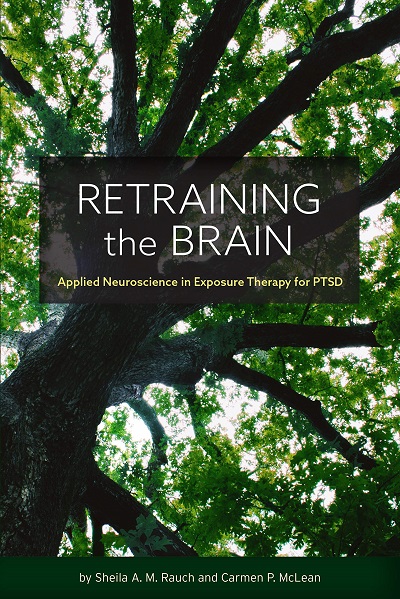Retraining the Brain
Retraining the Brain

The human brain is powerful, flexible, fragile, and yet strong. Within its many wrinkles and structures lies the key to human understanding. The past 30 years of research has seen vast leaps in our understanding of how the brain works in function and dysfunction. This remains true despite the fact that we are still in the infancy of neuroscience as a field. We expect the next 30 years will show exponential advances over what we currently know about how the brain works. As neuroscience has advanced, the specialization required to examine how specific structures work as well as how neurochemicals impact function has led to silos within neuroscience. Often those doing research on one structure or neurochemical may have little contact or discussion with others even though all of the systems and functions of the brain interact and often regulate each other. In addition to these silos within neuroscience, the silo of neuroscience is significant and makes it difficult for those without neuroscience training to understand and contribute to neuroscience research. For most mental health providers and even mental health treatment researchers, it is difficult to stay abreast of the latest neuroscience techniques and findings and often difficult to see how that research applies to their work. In addition, ever increasing time constraints on providers makes it difficult to even have time to ponder neuroscience and how it may be relevant to helping their patients.
The past 30 years has also seen significant advances in PTSD treatment leading to patients now having multiple options for effective PTSD treatment that include several psychotherapies and medications. Exposure therapy is a first line treatment for PTSD that involves retraining the brain and turning back on the stalled mechanisms of natural recovery. However, not all patients benefit from exposure therapy. The next 30 years of PTSD treatment research will prioritize finding ways to identify those who are less likely to remit with treatment, to optimize outcomes, and to increase treatment access and retention. To really move the field forward, these goals require a better understanding of HOW effective PTSD treatments work in the body and especially in the brain. We need to learn HOW we are retraining the brain with effective treatment. Recent work that brings together treatment researchers and methods with neuroscience research is beginning to merge neuroscience with clinical science and practice. Each of these groups has a unique and important perspective on PTSD treatment and each can inform the next steps in advancing the care of those suffering with PTSD. As we learn HOW treatment works we are able to then make changes to make it work more effectively, efficiently, and even retain people in treatment who may leave due to slow or low response. The challenge lies in communication as each field has its own language and level of examination for similar and even overlapping constructs. As an example, what a neuroscientist describes as a blunted cortisol response, an treatment researcher may describe as a non-responder, and a clinician may describe as flat affect or an underengagement in therapy. Without a translational guide, it is difficult if not impossible for these professionals to see the parallels in the phenomena they examine and thus impossible for these fields to fully benefit from the advances of science. As psychologists who have been in ALL of these roles, we wanted to provide a step towards more understanding and cross pollination of PTSD treatment research and clinical work through writing an applied neuroscience primer for PTSD treatment providers and PTSD researchers to quickly get up to speed and into the current thriving discussions of neuroscientists in PTSD. Our book Retraining the Brain: Applied Neuroscience in Exposure Therapy for PTSD lays out basic neuroscience methods and then applies the latest research to Prolonged Exposure Therapy for PTSD to open communication between clinicians, treatment researchers, and neuroscientists and promises to increase understanding and open a new collaborative potential to advance science. We hope that clinicians, neuroscientists, training directors, clinical trials researchers, and others find this book a useful tool to bridge neuroscience and clinical applied research.













